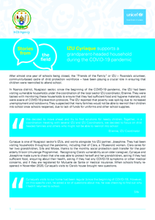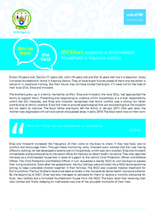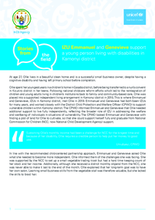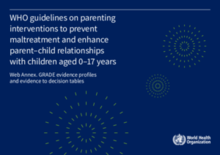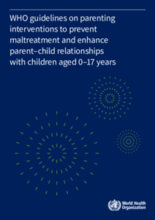Displaying 991 - 1000 of 14347
This study examines international adoptions by French people in more than twenty countries from 1979 to 2021. Researchers analyzed thousands of diplomatic files from the French Ministry of Foreign Affairs on the subject and found reports of various illicit practices in the process of adopting children.
A baby began her life surrounded by chaos and devastation this week. Reportedly named Aya – meaning ‘miracle’ in Arabic – she was born under the rubble of Monday’s deadly earthquake, still attached to her mother’s lifeless body by the umbilical cord when rescue workers found her.
In this case study IZU Cyriaque supports a grandparent-headed household during the COVID-19 pandemic.
This case study details how IZU Elisa supported a child-headed household in Kayonza district, Rwanda.
This case study details,how IZU Emmanuel and Genevieve supported a young person living with disabilities in Kamonyi district, Rwanda.
This case study details how IZU Immaculee and Naphtal help Laura to escape child labour and abuse in Musanze, Rwanda.
This brief presents the results of several assessments of the ‘Friends of the Family’ or ‘Inshuti z’Umuryango’ (IZU) initiative in Rwanda. IZU is a frontline volunteer cadre introduced in 2016 as part of Rwanda's national child protection system strengthening and care reform efforts.
This brief outlines the background to, rationale for, and objectives of the ‘Inshuti z’Umuryango’ (IZU) or ‘Friends of the Family’ programme in relation to Rwanda’s wider child protection strategy.
This web annex forms part of the WHO guidelines on parenting interventions to prevent maltreatment and enhance parent–child relationships with children aged 0–17 years. As such, it should only ever be read in conjunction with the main guideline document that sets out in detail how the methodology in the WHO handbook for guideline development was applied here, along with the development process and the recommendations themselves.
These WHO guidelines provides evidence-based recommendations on parenting interventions for parents and caregivers of children aged 0–17 years that are designed to reduce child maltreatment and harsh parenting, enhance the parent–child relationship, and prevent poor mental health among parents and emotional and behavioural problems among children.


